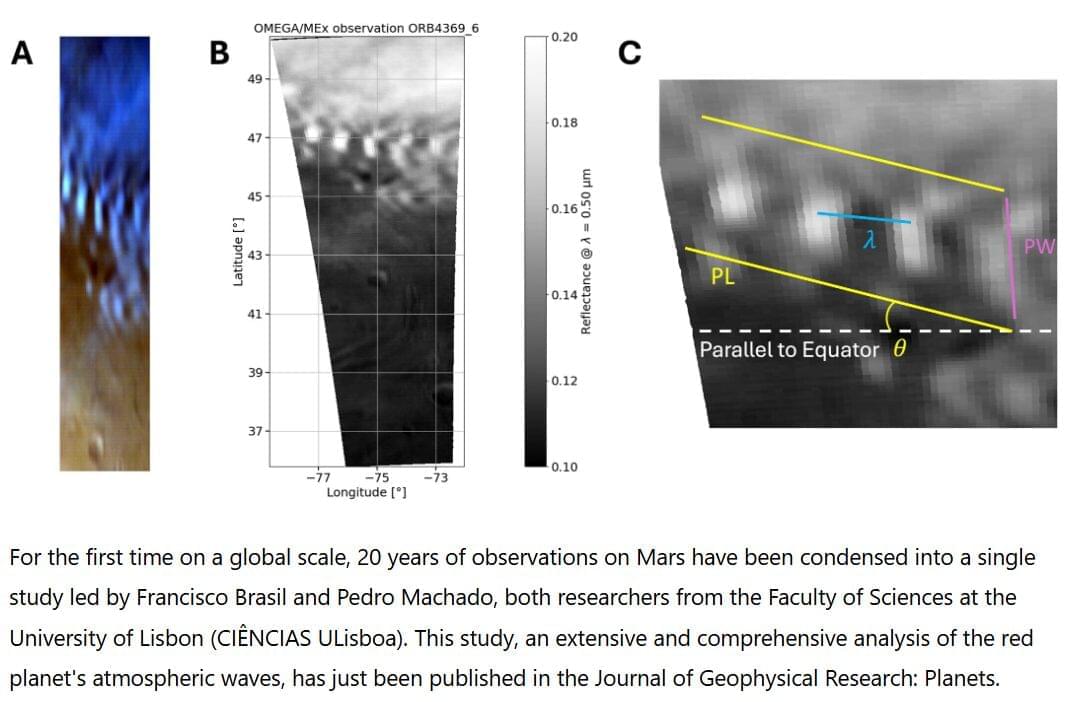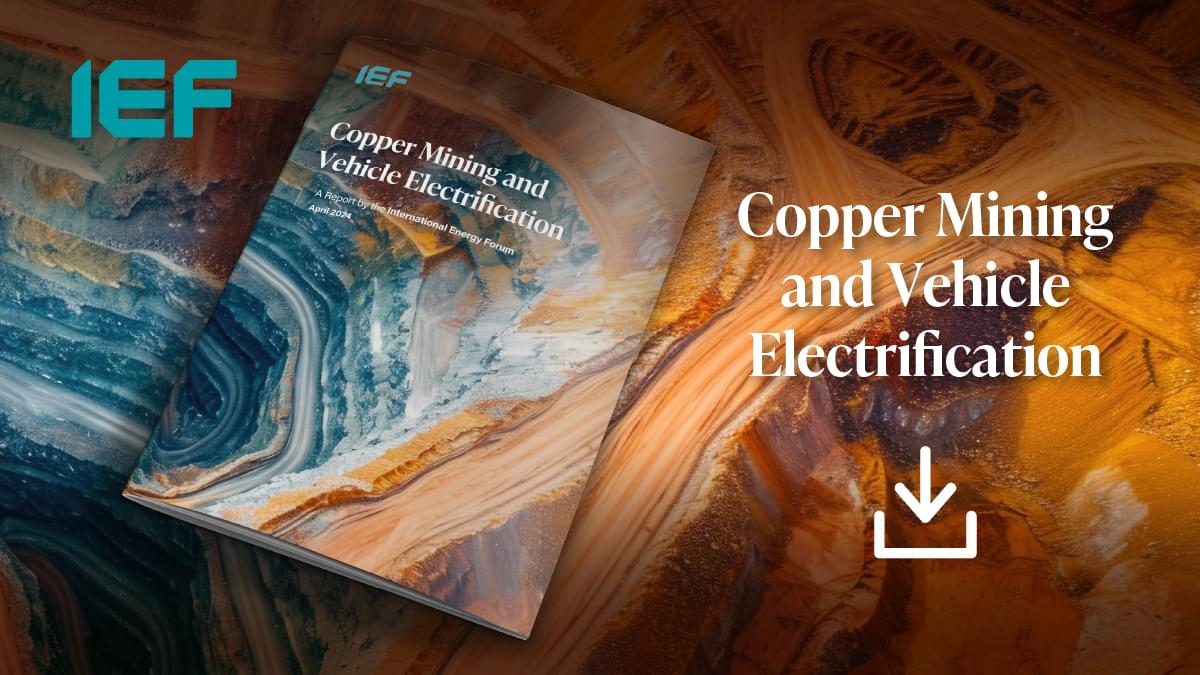How does climate change influence how birds can adjust to different climate conditions worldwide? This is what a recent study published in Nature Communica | Earth And The Environment


GOES-19 has taken over as NOAA’s primary geostationary eye in the Western Hemisphere, joining GOES‑18 to deliver unprecedented detail on global weather. It tracks hurricanes, atmospheric rivers, wildfires and more with high‑resolution imagery and lightning mapping. Its CCOR‑1 coronagraph keeps wa
Imagine a Slushee composed of ammonia and water encased in a hard shell of water ice. Now picture these ice-encrusted slushballs, dubbed “mushballs,” raining down like hailstones during a thunderstorm, illuminated by intense flashes of lightning.
Planetary scientists at the University of California, Berkeley, now say that hailstorms of mushballs accompanied by fierce lightning actually exist on Jupiter. In fact, mushball hailstorms may occur on all gaseous planets in the galaxy, including our solar system’s other giant planets, Saturn, Uranus and Neptune.
The idea of mushballs was initially put forth in 2020 to explain nonuniformities in the distribution of ammonia gas in Jupiter’s upper atmosphere that were detected both by NASA’s Juno mission and by radio telescopes on Earth.

For the first time on a global scale, 20 years of observations on Mars have been condensed into a single study led by Francisco Brasil and Pedro Machado, both researchers from the Faculty of Sciences at the University of Lisbon (CIÊNCIAS ULisboa). This study, an extensive and comprehensive analysis of the red planet’s atmospheric waves, has just been published in the Journal of Geophysical Research: Planets.
Atmospheric waves are “wave-shaped disturbances that travel through the planet’s atmosphere, much like waves moving across the surface of water,” explains the study “Atmospheric Gravity Waves in Mars’ Lower Atmosphere: Nadir Observations From OMEGA/Mars Express Data.”
The researchers focused on this energy, which has a significant impact on the planet’s climate. The data, collected by the Observatoire pour la Minéralogie, l’Eau, les Glaces et l’Activité (OMEGA) from the European Mars Express space mission, served as the foundation for this ambitious analysis.

Volcanic activity at Mount Spurr in Alaska is predicted to culminate in an explosive eruption in the coming months, potentially resulting in ashfall and disruptions to aviation operations in the greater Anchorage area. The stratovolcano, located in the Aleutian volcanic arc, lies around 129 km (80 miles) west of Anchorage on the western side of the Cook Inlet.
An uptick in low-level seismic activity and snow and ice melt has been occurring at the volcano since last year, indicating magmatic movements taking place under the surface; the alert level at the volcano was raised to yellow (the second lowest-level on a four-tier scale) in October 2024. Volcanic gas emissions have also been recorded, and the latest assessments indicate this activity will more likely end in an eruptive episode, rather than simmer down as it did in 2004–2006.


Reports of extraterrestrial beings, particularly the iconic “grey aliens,” have permeated modern folklore and ufology since the mid-20th century. These beings — typically described as small-statured humanoids with large, black almond-shaped eyes, diminutive noses and mouths, and grey skin — have become embedded in our cultural consciousness (Sagan, 1995). But what if these entities are not visitors from distant stars, but rather glimpses of our own evolutionary future? This essay explores a compelling hypothesis: that the grey aliens reported in countless encounters might be evolved or bio-engineered humans from our future, adapted specifically for subterranean existence following a global catastrophe.
Humanity stands at a crossroads of existential risk. Climate change, nuclear proliferation, biological warfare capabilities, and ecological collapse represent just a few of the potential calamities that could force a dramatic reshaping of human civilization (Bostrom, 2013). If surface conditions on Earth became inhospitable — whether through nuclear winter, extreme solar radiation following ozone depletion, or uninhabitable surface temperatures — surviving populations might be driven underground, initiating a profound evolutionary divergence.
“When faced with extinction-level threats, species often undergo rapid adaptation to secure their survival,” notes evolutionary biologist Dr. Elena Rodriguez (2022, p. 87). “Humans, with their capacity for technological intervention in their own biology, could potentially accelerate this process by orders of magnitude.”

A week before Tropical Cyclone Alfred was nearing the east coast of Australia, most forecasts were favouring a path either well offshore or near the central Queensland coast.
There was a curious anomaly though: an AI prediction from Google’s DeepMind, called Graphcast, was predicting the centre of Alfred would be just 200 kilometres off the coast of Brisbane.
That forecast, made 12 days before ex-Tropical Cyclone Alfred crossed the south-east Queensland coast, was far more accurate than leading weather models used by meteorological organisations around the world, including our own Bureau of Meteorology (BOM).

Copper is the mineral most fundamental to the human future because it is essential to electricity generation, distribution, and storage. Copper availability and demand determine the rate of electrification, which is the foundation of current climate policy. Many studies have raised concerns that copper supply cannot meet the copper demands of both the green energy transition and equitable global development, but the seemingly universal presumption persists that the copper needed for the green transition will somehow be available. This need not be the case for even the first step of vehicle electrification.
This paper addresses this issue by projecting copper supply and demand from 2018 to 2050 and placing both in the historical context of copper mine output. Discussion is focused on a single diagram that illustrates the unprecedented nature of the copper mining challenge and ways to reduce copper demand.
Just to meet business-as-usual trends, 115% more copper must be mined in the next 30 years than has been mined historically until now. To electrify the global vehicle fleet requires bringing into production 55% more new mines than would otherwise be needed. On the other hand, hybrid electric vehicle manufacture would require negligible extra copper mining.

Among the mountains of evidence that climate change is warming Earth faster than any other point in recorded history is the fact that most glaciers around the world are shrinking or disappearing. Melting glaciers and ice sheets are already the biggest contributors to global sea level rise, and according to the World Glacier Monitoring Service, ice loss rates have increased each decade since 1970. Yet, of the approximately 200,000 glaciers in the world currently, no database exists to identify which glaciers have disappeared, and when. The Global Land Ice Measurements from Space (GLIMS) initiative, an international project designed to monitor the world’s glaciers primarily using data from optical satellite instruments, aims to change that.
“Glaciers are indicators of climate change because they grow and shrink on longer timescales than rapidly changing weather, so they give a clearer signal about climate,” said Bruce Raup, a senior associate scientist at the National Snow and Ice Data Center (NSIDC) and director of the GLIMS initiative. “We know that glaciers are disappearing, but we’ve had no way to show that to people. So, we are making an effort to document glaciers that have disappeared and approximately when they disappeared.”